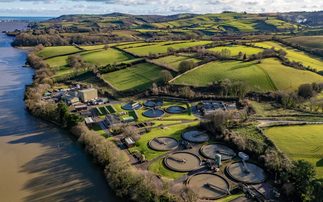With new plans to cut emissions by 85 per cent by 2045 and offset the rest abroad, the Scandinavian country is demonstrating how green ambition can be ratcheted up post-Paris
The difficulty of curbing emissions from energy intensive industries, such as the steel sector, is one of the reasons the 15 per cent offset allowance was included in the new proposals, although the goal remains another detail that needs to be worked out more precisely.
Moreover, the committee doesn't appear to have plans to include Sweden's forests in the calculations, which currently act as a huge carbon sink due to net growth in the country's forest cover. "We should look at both what we can do in terms of offsetting in other parts of the world... but also how we can increase our own sinks in terms of climate," says Kuylenstierna. "Forestry is only one example of that - you can also have increasing sinks in agriculture and other sectors as well."
Regardless of the final details for the new plan it is increasingly evident Sweden wants to cement its position as a clean tech hub and an attractive market for green businesses, many of which have responded positively to both the Paris Agreement and Sweden's subsequent plan to strengthen its climate strategy.
"In Sweden you can see after the Paris Agreement the Swedish business community have really started to work with their climate targets," says Ekelund. "A lot of people and companies are waiting right now for what this environmental committee comes up with." However, while she admits that the fact the country has already made many of the easiest emissions cuts means there will be challenges ahead, she is adamant that the more ambitious targets are putting Swedish companies in a favourable position. "We are more competitive towards the European markets and other countries by having this really tough target," she says.
And others seem to be agreeing. While some businesses were vocally critical several years ago when Sweden set a 40 per cent emissions reduction target for 2020, the new plan appears to have faced less opposition. With the country having made good progress towards meeting the 2020 goal with a 24 per cent reduction on 1990 levels recorded in 2014, reducing emissions makes increasing sense to many firms. "We showed that we can both reduce our climate impact and have good growth at the same time," says Ekelund. "We get more energy efficient companies, and we also see that we are reducing our dependency of oil because we're going more towards biofuels."
This emphasis on maintaining competitiveness is one of the reasons the dialogue between business and government on climate policy remains broadly constructive in Sweden. "[There's a] quite strong sense of collaboration between the political side and also business," says Kuylenstierna. "[There has] been a big shift in terms of business in Sweden towards in general pushing for high ambition. The private sector came in very strongly in Sweden and many of them actually wrote very open op-eds and so on in newspapers basically demanding that they expected politics to take long-term action as well."
While the exact details of how Sweden's new carbon neutral goal will be implemented are yet to be ironed out, is it clear some countries will deliver on the promise of the Paris Agreement by ratcheting up their climate policy ambition. Businesses and investors would be wise to keep a close eye on the Swedish clean tech hub as it attempts to make its "carbon neutral" aspiration a reality.
This article is part of BusinessGreen's Road to Paris hub, hosted in association with PwC.








